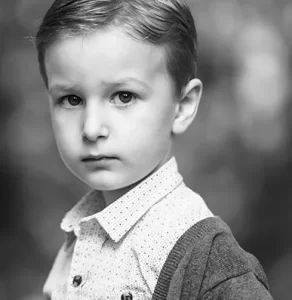What to Do if You Believe Your Child Was Sexually Assaulted by a California Educator? 2024

Parents put an immense amount of trust in educators. They often spend more time with your children during the week than you do. So, when you suspect that trust might have been broken, you may be experiencing feelings of anger or confusion and asking what to do. Know what steps you should take to empower yourself and your child to hold them accountable if you are wondering what to do if you believe your child was sexually assaulted by a California educator.
What Is Educator Sexual Assault?
California Penal Code 288 PC states that it is a crime for a person to engage in lewd acts with a child under the age of 16 is illegal. This includes any acts that promote the arousal, gratification, passion, or sexual desire of an adult or a child. However, educators must also adhere to Chapter 128 Sec. 1708.5.5, which states that the consent of an individual over the age of 16 is not a legal defense if the child is still a student and under the age of 18.
Schools Are Responsible for the Protection of Students
California Education Code Section 44,807 outlines the requirement of each California school district to adopt policies and procedures that require administrators, teachers, and all other employees to be fingerprinted and background checked.
In addition, California has enacted California Education Code 221.5-231.5, which is known as the Sex Equity in Education Act. These statutes are the state’s enactment of Title IX, which states school districts are responsible for providing all students with a safe and secure environment that is free from sexual advances, harassment, or assault. All school district employees are mandated reporters, requiring them to report all suspected cases of abuse and neglect. Despite this, many school districts are negligent in reporting educator sexual assault and abuse cases.
Recognizing Common Signs of Sexual Assault or Abuse
Many children will not outright disclose the abuse they are experiencing, so being aware of the common signs may help with earlier intervention.
- Behavioral signs. Withdrawing from friends, family, or other activities they have previously loved, regressing in behavior such as bedwetting or thumb-sucking, increased aggression, inappropriate sexual behavior, or knowledge beyond what is normal for their age.
- Emotional signs. Depression or persistent sadness, excessive worry, fear, or panic attacks, extreme mood swings, low self-esteem, being unusually fearful or nervous around certain people or situations.
- Physical signs. Unexplained bruises, cuts, or injuries, complaints of pain, itching, or discomfort in the genital area, signs of sexually transmitted infections, difficulty sleeping, or frequent nightmares.
- Social signs. Difficulty forming or maintaining relationships and increased secrecy about activities and relationships.
The signs will be different in younger children than in adolescents. Younger children may show sexual acts in their play behavior, be fearful of specific adults, or begin using sexual language that is not normal for their age. Adolescents may engage in risky or self-destructive behaviors or be unusually secretive about relationships or activities.
What Should You Do If You Suspect Sexual Assault?
If you believe your child may be a victim of sexual assault from an educator, remember to stay calm. Separate your child from the suspected perpetrator, such as removing them from class. Find a comfortable and safe spot to talk to your child and ask them open-ended questions. It is important to remain cool and collected, as you don’t want them to believe they are upsetting you. Always listen carefully and assure them that you believe them.
Contact your local law enforcement agency or child protective services hotline. You should then consider filing a civil lawsuit or pursuing other legal avenues.
Pursuing a Civil Lawsuit
Civil lawsuits may be brought against an alleged perpetrator of sexual misconduct if the victim has a professional relationship with them. Victims or their families can also file a civil lawsuit against the school district for negligence. Civil lawsuits can include compensation for emotional distress, medical expenses, and other damages. For a comprehensive review of your case, reach out to our experienced child sexual abuse lawyers.
FAQs
What Is the Process for Investigating a Report of Educator Sexual Abuse?
Once a report is made, law enforcement or child protective services will investigate. An investigation usually includes interviewing the victim, the alleged perpetrator, and witnesses, as well as reviewing evidence. Schools may choose to conduct an internal investigation as well. When this all concludes, there may be criminal charges, disciplinary actions from the school, or civil lawsuits.
What Laws Protect Students from Educator Sexual Abuse in California?
Students are protected from educator sexual abuse under multiple laws, including California Penal Codes, California Education Codes, Title IX of the Education Amendments of 1972, the Child Abuse and Neglect Reporting Act (CANRA), and the California Code of Regulations (CCR). Along with these laws, many schools do background checks and have Professional Conduct Codes with the requirement to provide a safe educational environment for children.
How Should I Respond if My Child Discloses That They Were Sexually Assaulted at School?
First, you should stay calm and collected. Listen to them carefully, believe what they say, and express support. Keep a detailed record of everything they said, and save any potential evidence like clothing, messages, or photos. You should contact the local police department or Child Protective Services to file a report and consider consulting with an attorney.
What Are the Long-Term Effects of Child Sexual Assault on Victims?
Besides the potential for physical health issues child victims of sexual assault may experience, they could experience emotional, psychological, behavioral, social, cognitive, and academic effects. It is important to provide early intervention and continuous support through therapy, support groups, and a strong support network for your child to help them heal.
What Legal Repercussions Will a Perpetrator Face if Found Guilty?
If a teacher is found guilty of sexual assault, they face substantial prison time and fines. Convicted sex offenders in California are also required to register with the California Department of Justice as sex offenders, usually for life. On top of these, their teaching license may be revoked or suspended.
California Educator Sex Abuse Attorney
If your child is a victim of sexual assault or abuse in a California school, you have the right to file a civil lawsuit against the abuser, the school district, or other involved parties. At DeMarco Law Firm, our dedicated child sexual abuse attorneys are here to fight for your child and hold their teacher, coach, staff member, or other educator accountable. Contact us today.




